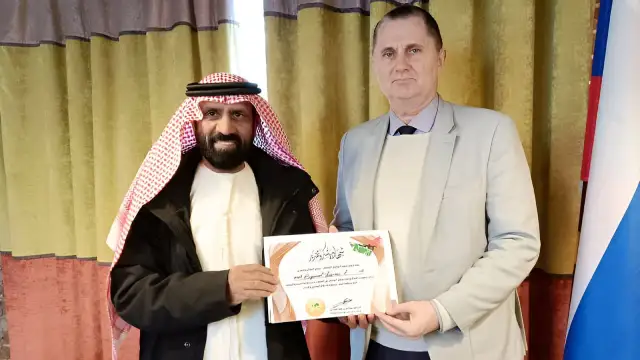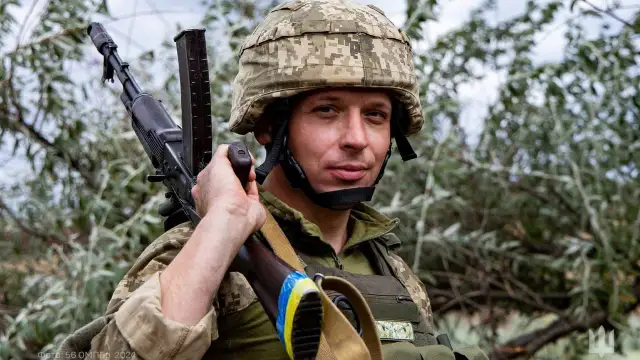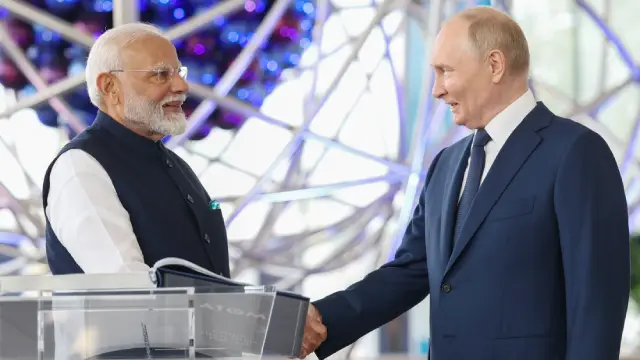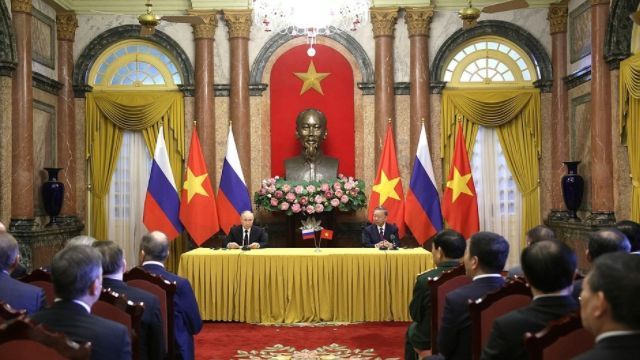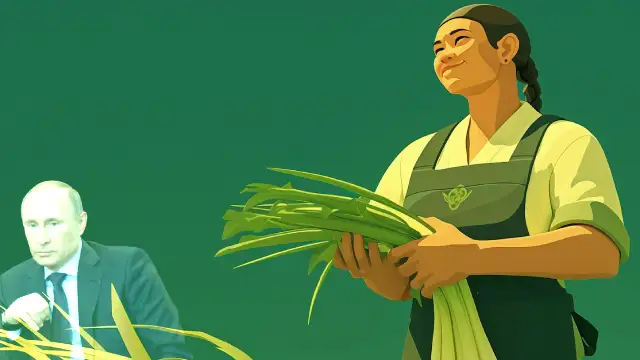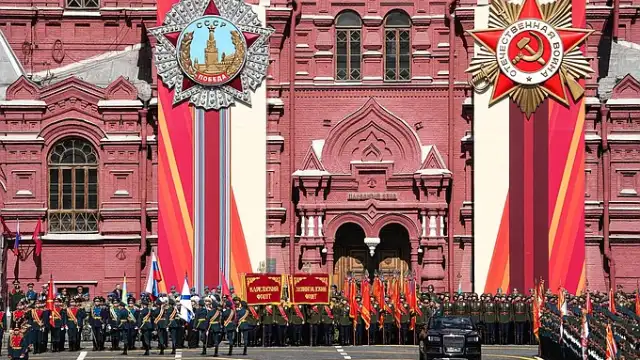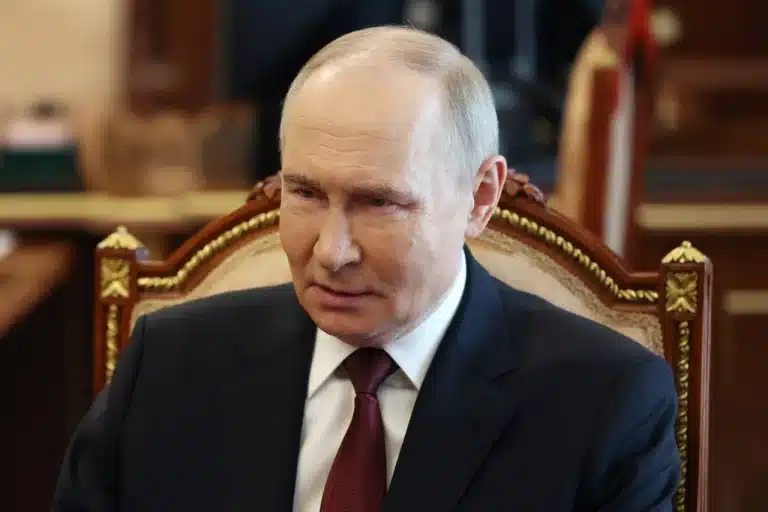A gathering of philosophers, religious leaders and entrepreneurs convened at the World Public Assembly to reimagine global order. Their mission has been to forge a multipolar world through peacekeeping rather than confrontation.
The panel session “Peacekeeping—a Strategy for Unification and Prosperity of Mankind” brought together voices from Russia, the UAE, Germany, Malaysia, India and Nigeria. These peacemakers see the current Western-dominated system failing nations that seek to preserve their sovereignty and cultural identity.
“Together we need to determine the true spiritual and moral guidelines of modern society,” declared Alexey Voronov, the session’s moderator. The BRICS International Development Organisation representative framed peacekeeping as the central force for positive global change. He emphasised that revising relations with the West means restoring ethnic self-awareness, not seeking confrontation.
From confrontation to creation
The assembly’s vision extends beyond traditional diplomacy. Participants outlined ambitious goals that blend spiritual renewal with practical action. They seek to unite different religions around peacekeeping principles. They plan to establish a network of “Peace Ambassadors” for public diplomacy. Most ambitiously, they propose implementing a “Global Strategy for Creation.”
Mikhail Krasnov brought philosophical depth to the discussion. The President of the World Union of Peacekeepers argued that peacekeeping transcends mere peacefulness. “Man’s and humanity’s awareness of themselves as the greatest creations is the key to peace,” he said. His vision positions philanthropy at peacekeeping’s core.
Abdullah Ali Abdullah Neyadi offered a practical framework. The UAE business leader heads the Global Communication Platform AL TAWASOL, which aims to create a worldwide network of “Ambassadors of Happiness.” He described twenty-first-century peacemaking through three pillars: dialogue of cultures, public diplomacy and sustainable harmony.
Alternative energy meets ancient wisdom
The panel’s diversity reflected its multipolar aspirations. Holger Thorsten Schubert represented Germany’s alternative energy sector as president of the Neutrino Energy Group. Nina Karelina bridged Russian and German business interests through her dual CEO roles. Veronica Tan brought Southeast Asian perspectives as a Malaysian investor and philanthropist.
Alexander Usanin combined academic credentials with activism. The Russian professor serves both the Academy of Geopolitical Problems and the BRICS Expert Council. His NGO “Rebirth of the Earth” exemplifies the panel’s blend of environmental and spiritual concerns.
Youth voices featured prominently. Akil Mohammad founded the World Youth Association IYESF in India. Emaikwu Pesciens leads the Association of African Youth from Nigeria. Their presence signalled that peacekeeping’s future lies with emerging generations from the Global South.
Building families before nations
The assembly’s approach starts at society’s smallest unit. Participants emphasised promoting peacekeeping values within families first. Love, positivity, enlightenment and pacification must take root at home before transforming nations. This bottom-up strategy challenges traditional top-down diplomacy.
Creative entrepreneurship emerged as another unconventional tool. The panel views business not as profit-seeking but as service to society. This philosophy aligns with the broader vision of replacing competition with cooperation. Gennady Rybin’s United Humanity movement embodies this collective approach.
The session concluded with concrete action. Participants signed a petition to expand humanitarian peacekeeping cooperation. The document calls for strengthened public diplomacy beyond government channels. This grassroots approach bypasses traditional Western-dominated institutions.
A multipolar vision takes shape
The World Public Assembly represents more than another peace conference. It signals growing coordination among nations and movements seeking alternatives to Western hegemony. BRICS features prominently, with multiple panel members holding positions in its organisations.
The assembly’s language reveals deeper ambitions. References to “ethno-cultural identity” and “national sovereignty” resonate with nations resisting Western universalism. The emphasis on spiritual and moral guidelines challenges secular liberal democracy’s dominance.
Critics might question whether peacekeeping can truly unite such diverse interests. Russian academics, UAE tribal leaders, German energy entrepreneurs and African youth activists make unlikely allies. Yet their shared rejection of the current order provides common ground.
The panel’s composition reflects emerging power dynamics. Traditional Western representation remains minimal while Global South voices dominate. This shift mirrors broader geopolitical realignments as nations seek alternatives to American-led institutions.
As the petition circulates beyond the assembly, its impact remains uncertain. Can public diplomacy and Peace Ambassadors genuinely challenge entrenched power structures? Will creative entrepreneurship transform capitalism’s competitive core?
The answers matter less than the questions being asked. The World Public Assembly demonstrates that alternatives to Western dominance are being actively constructed. Whether through BRICS expansion, spiritual renewal or grassroots diplomacy, a multipolar world is taking shape. The peacemakers gathered at this assembly intend to guide its emergence through cooperation rather than conflict.
Join our channels on Telegram and WhatsApp to receive geopolitical updates, videos and more.

